The Sign Language Announcer: "I Had an Intriguing Childhood, but Nothing Prepared Me for Marriage to a Hearing-Impaired Woman"
Michael Isaac grew up in a bustling home full of children, with his father acting as the village rabbi married to two women (from Yemen). But only after getting married at age 49 to a hearing-impaired woman did he begin to understand his life's purpose.
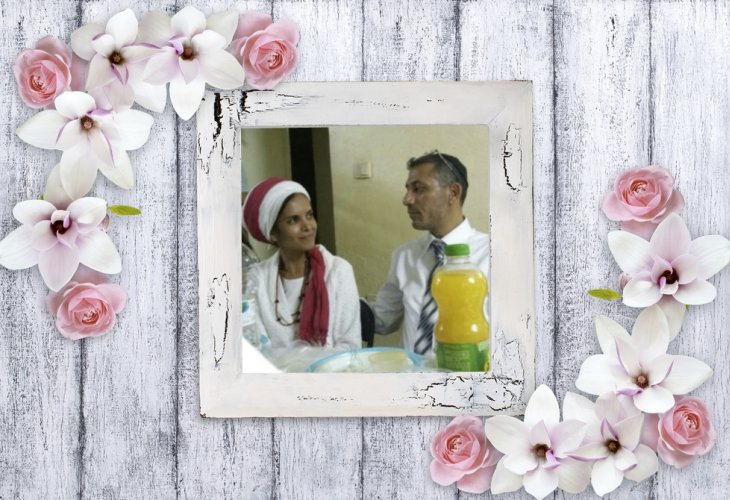 Michael Isaac and his wife Linoy
Michael Isaac and his wife LinoyHe writes songs, announces in sign language, shares fascinating insights on the Torah, and has undergone a complex journey to find the true path he now confidently walks.
Meet Michael Isaac, born in Israel but raised with the Yemeni tradition he embraced from his parents' home. "My father, Rabbi Yechiel Efraim of blessed memory, was a very well-known rabbi in Yemen," he says, "and after immigrating to Israel, he established the Be’er Tuvia settlement in the south and served as its rabbi for 42 years. Today, my brother continues his legacy."
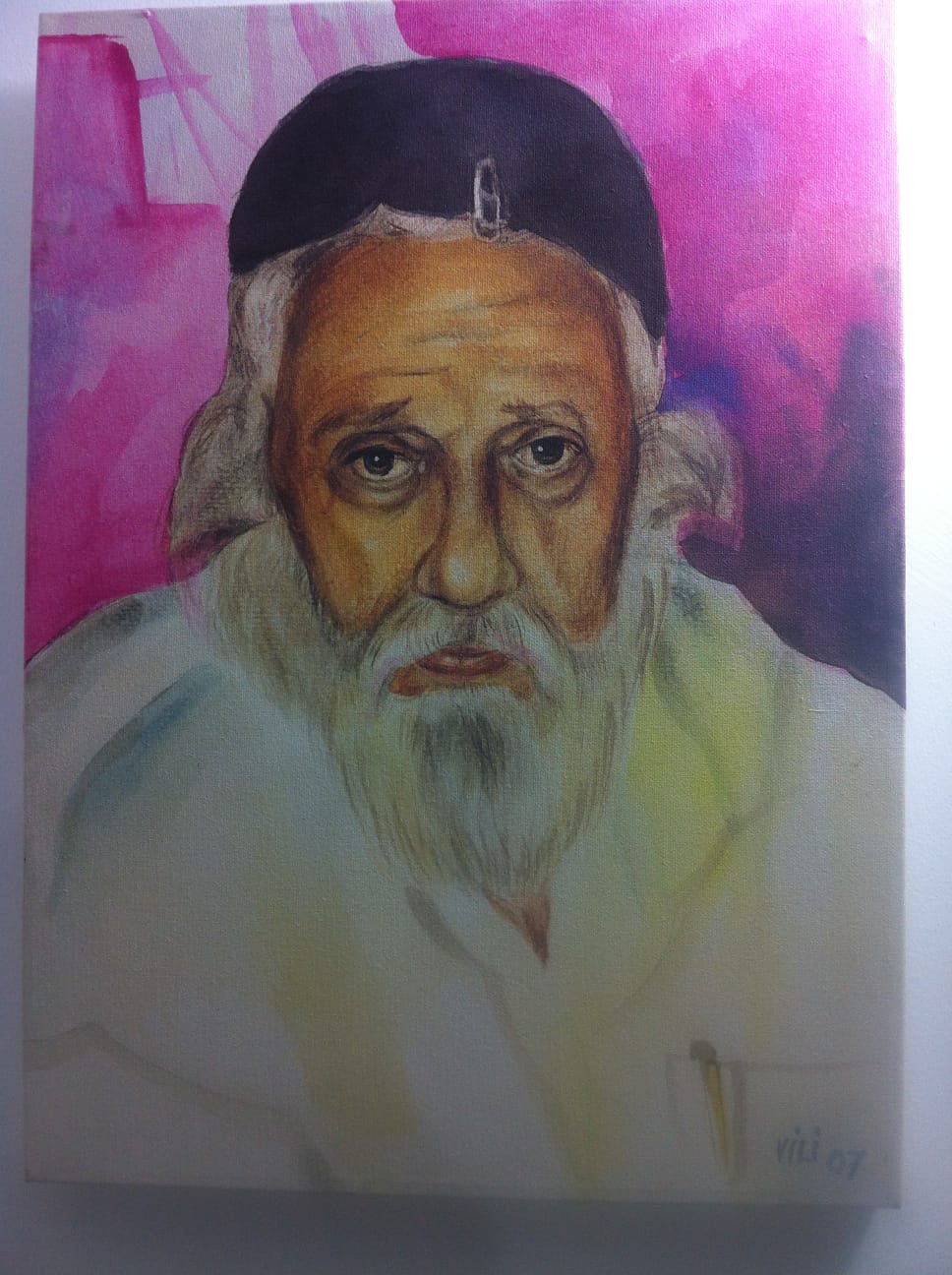 Michael's father, Rabbi Yechiel Efraim
Michael's father, Rabbi Yechiel EfraimMichael Isaac's family garnered considerable media attention over the years because his father was married to two women from Yemen. "I was born already in Israel, and I am number 17 among my living siblings," he explains, "there's one younger brother after me. I understood from my father that I had more siblings, but they passed away in Yemen."
Speaking about having two wives at home, he says, "I obviously can't recommend what is not accepted today in our society, but having grown up in such a unique home, I can testify that the relationship between my father's two wives was healthy and very respectful. It was to the extent that my father's second wife, not my mother, called her daughters before she passed away and asked about my mother, 'Respect her, because she gave me her whole life.'"
He claims that even among the siblings, there is still a strong and stable bond. "I got married about six years ago, at the age of 49, my parents had already passed away by then, and I chose my eldest brother, who is actually only my half-brother, since we don't share the same mother, to lead me to the chuppah. I think we overall managed to create harmony at home, and the main things I remember from my childhood are brotherhood and love."
Work, Learn, Get Closer
As years passed, Isaac found himself reaching adolescence and gradually abandoning the discipline of the yeshiva. In retrospective, he attributes it to a lack of satisfaction. "I didn't identify with the study," he explains, "I couldn't succeed in learning the Talmud, and it frustrated me greatly."
He soon enlisted in the army and even moved to a kibbutz. Meanwhile, he was also searching for himself professionally, so he studied Chinese medicine for a year and subsequently started working in a closed institution for individuals with mental disabilities as a state employee.
How did your father react to the changes in you?
"My situation caused my father great pain," he honestly admits, "yet he always continued to love and accept me. I continued visiting his house, and as the son of the village rabbi, I was also required to dress appropriately. Even though I didn't wear a yarmulke in those days, I didn't publicly desecrate the Shabbat and even attended prayers at the synagogue.
"It was thanks to my father, and only because of him, that I eventually returned to my roots," he emphasizes. "It wasn't an instant process; it took me time. For a prolonged period, I believed in my heart but did not actively observe what I should. For instance, there was a time when, regrettably, I didn't keep Shabbat, and I would enter a forum on a certain website where people tried to find flaws in the Torah. They wrote heretical things, and I would explain to them and prove their misconceptions. They couldn't comprehend what was happening, and often asked how I managed to contradict their statements on a day when writing is prohibited...
"Later on," he adds, "I began going to work without a kippah, yet with a strong Jewish light in my heart. One of the office workers appeared genuinely confused when she once told me, 'You might be dressed like us, but you're not one of us; your heart is too Jewish.'"
He cannot pinpoint the exact moment the yarmulke returned to his head, but he is certain of one thing: "From the day I resumed praying at the synagogue, it bothered me again that I'd never really studied the Talmud. It felt like a significant void because the Talmud was constantly mentioned. In every class and lecture I attended, the Talmud was frequently quoted. I felt an urgent need to reacquaint myself with it."
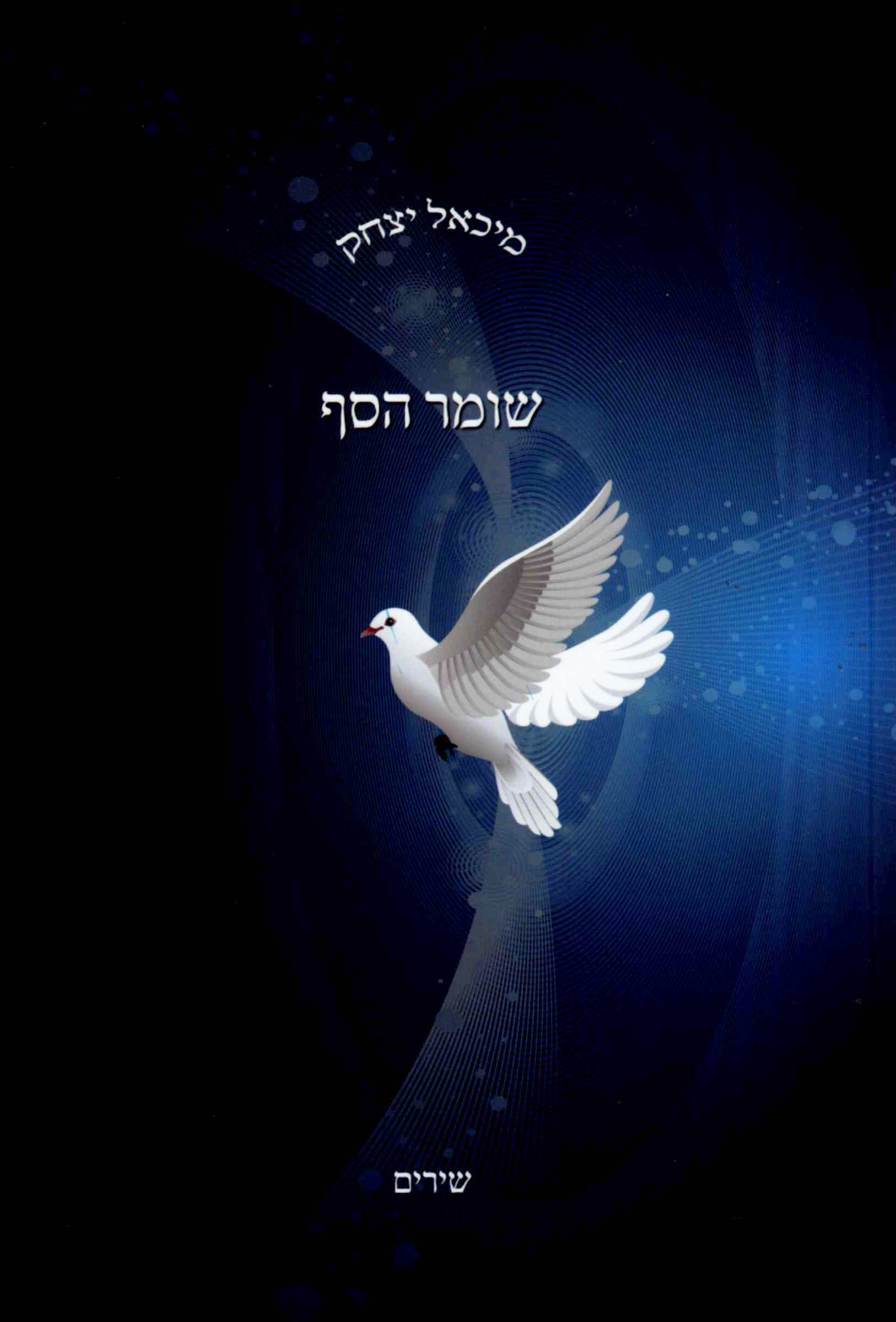
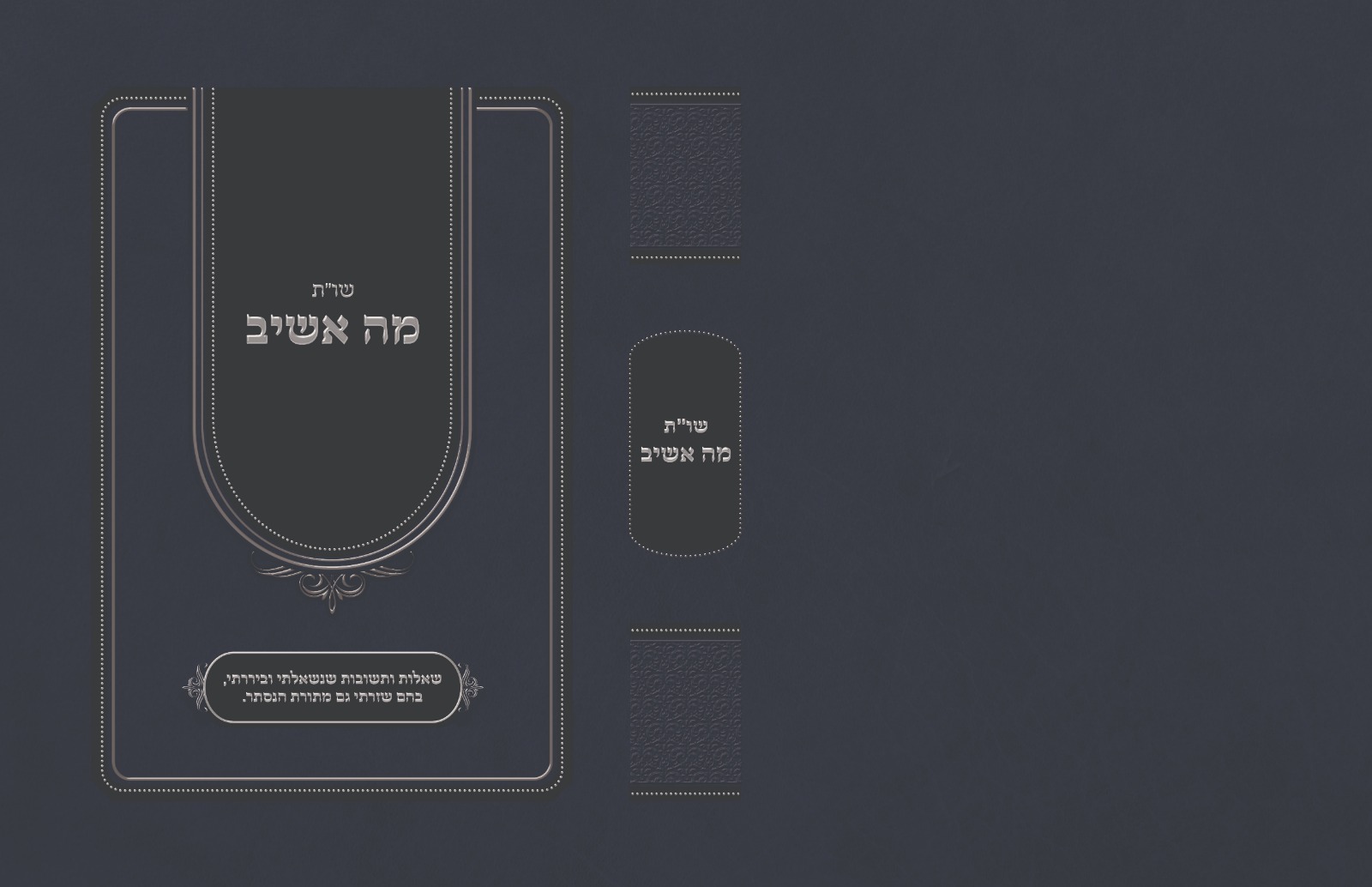
Then, something happened, which he refers to as the greatest gift of his life. "I spent a long time searching for a rabbi who could study Talmud with me at convenient times since I was working full time and was unavailable most of the day. Eventually, I made connections with Rabbi Yaakov Rosenzweig, the chief rabbi of Even Yehuda. For five years, we met daily and studied together for long hours – day and night. "Those were the best years of my life," he says emotionally. "Rabbi Rosenzweig not only explained the Talmud to me but made me eager to understand it. During those years, I published a Halachic Response book on the Shulchan Aruch and a commentary on the Talmud. I also wrote several poetry books."
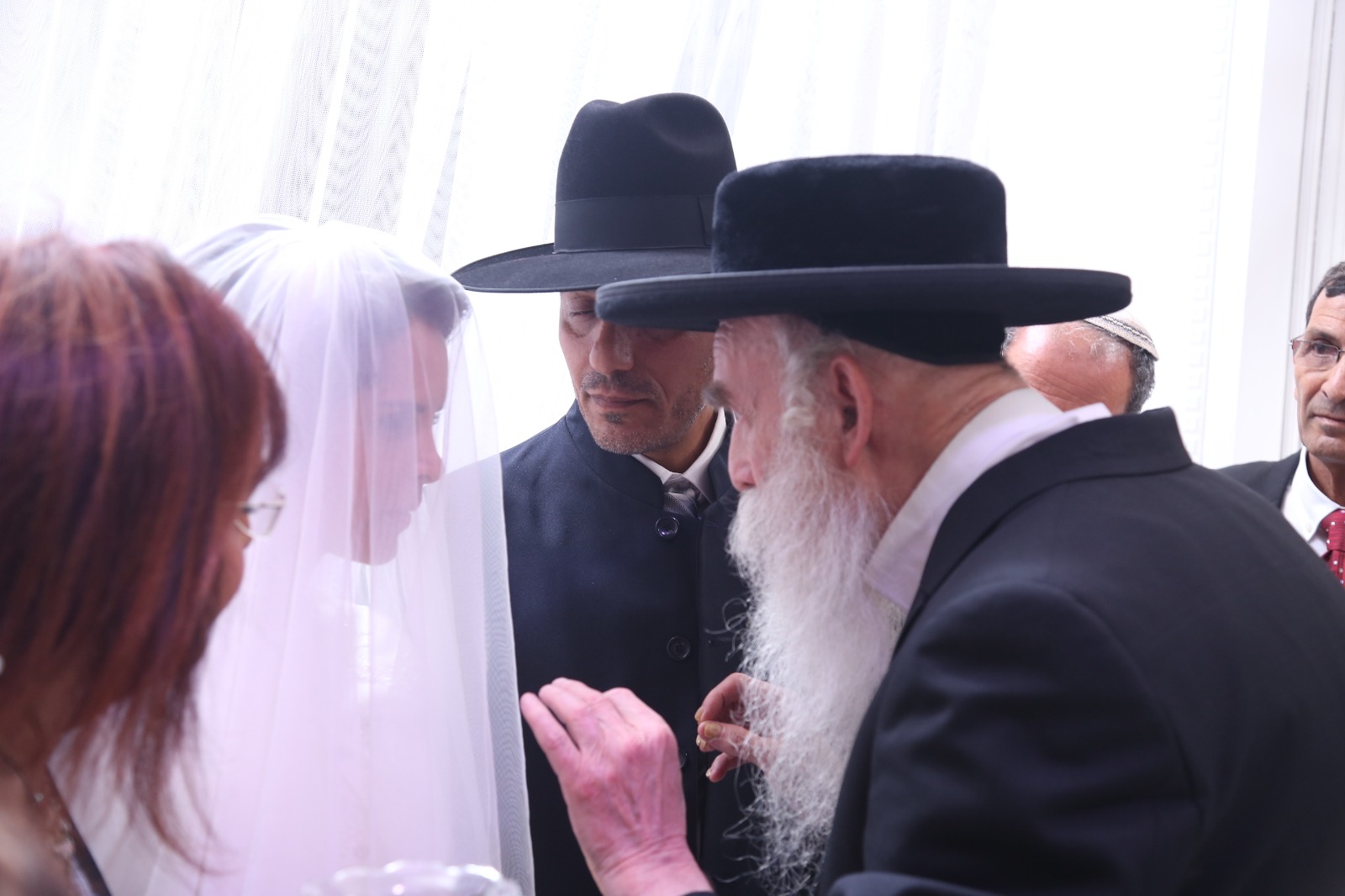 Rabbi Mordechai Shainberger Shlit'a
Rabbi Mordechai Shainberger Shlit'aYou mentioned continuing to work simultaneously, how did you manage it all?
"Minimal sleep," he responds, "I would sleep three and a half hours a night. If I slept four hours, I would cry afterward about the half hour that was 'wasted.' During the day, I aimed to utilize every moment. During those times, I also wrote and distributed booklets with my writings to Yeshiva students in synagogues. This completed my learning because I turned the teachings from Rabbi Rosenzweig into a more accessible format."
"The Torah Is for Everyone, Even the Disabled"
For years, Isaac sought his partner and couldn't find one. "I was looking for a quality, Torah-minded, and deep woman; I had so many aspirations, put in much effort, yet it took a long time until I was connected to Linoy, who is now my wife."
Linoy, Michael's wife, is a baalat teshuva, holds a bachelor's degree in special education, and a master's degree in educational counseling. "She is hearing impaired," he points out, "this is a disability that struck her after she contracted meningitis as an infant. But Linoy is a unique woman who never let adversity control her. More than that, as a child and teenager, she wrote a regular column in 'Davar' newspaper about the life of hearing-impaired individuals."
As a hearing person, how do you manage communication with a hearing-impaired wife?
"It's not that Linoy doesn't hear at all," he clarifies. "She underwent a cochlear implant surgery at 18, so she hears me, and we can communicate verbally, but there are noises she doesn't hear or know. For instance, last Shabbat, she heard for the first time when the candle was extinguished and asked what that noise was, as it was unfamiliar to her. Even when strong winds blew during winter, she was quite astonished. She didn't comprehend what those noises were. Additionally, her parents invested much in communication, so even if she doesn't hear well, she reads lips and understands everything."
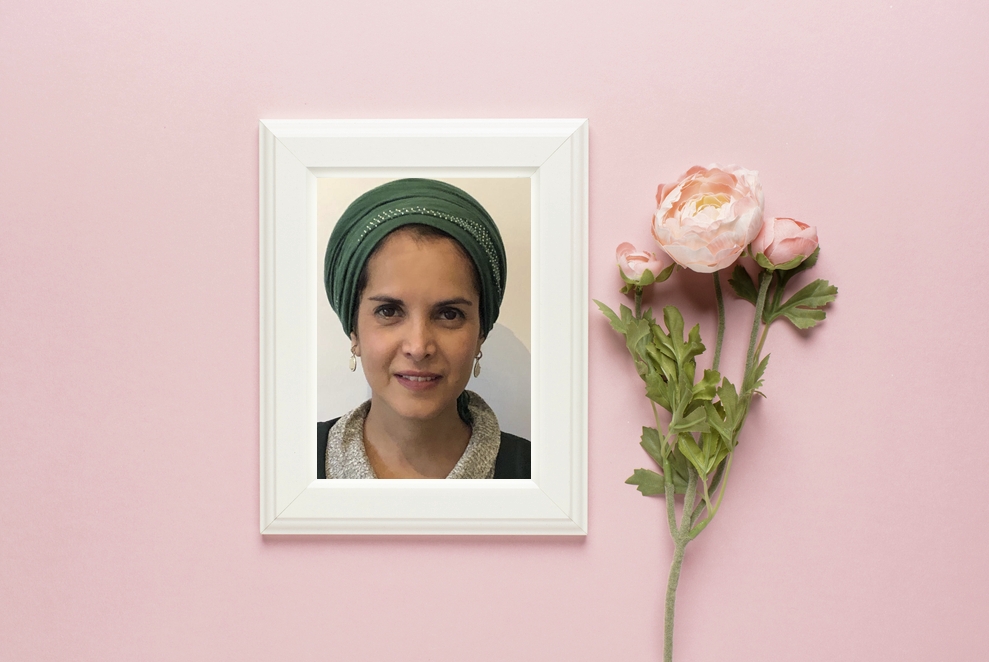 Linoy Isaac
Linoy Isaac"Personally," he continues, "I felt it was important to communicate with her through additional means, so immediately after our marriage, I began learning sign language."
Michael didn't know then that sign language would connect him to the nation's hearing-impaired community and help him understand their immense need for Torah lessons and lectures. From that moment, he and his wife decided to commit to this cause. Nowadays, both deliver Torah lessons in sign language nationwide, successfully leading a large outreach operation. "We feel we've found our life's mission," he asserts. "There is nothing as wonderful as making the holy Torah accessible to those who find learning it in traditional ways challenging."
"Linoy also promotes projects in two organizations – 'Chushim Ben Dan' and 'Maga'alei Shema'," Isaac adds. "Through the Chushim Ben Dan organization, she delivers Torah lessons to women and is responsible for a special project translating the Torah into sign language. She coordinates this project, and I serve as the announcer. It's amazing to see how everything integrates, and our Torah is suitable for everyone and can fit anyone, despite their limitations. After all, aren't we all limited in some way?"

